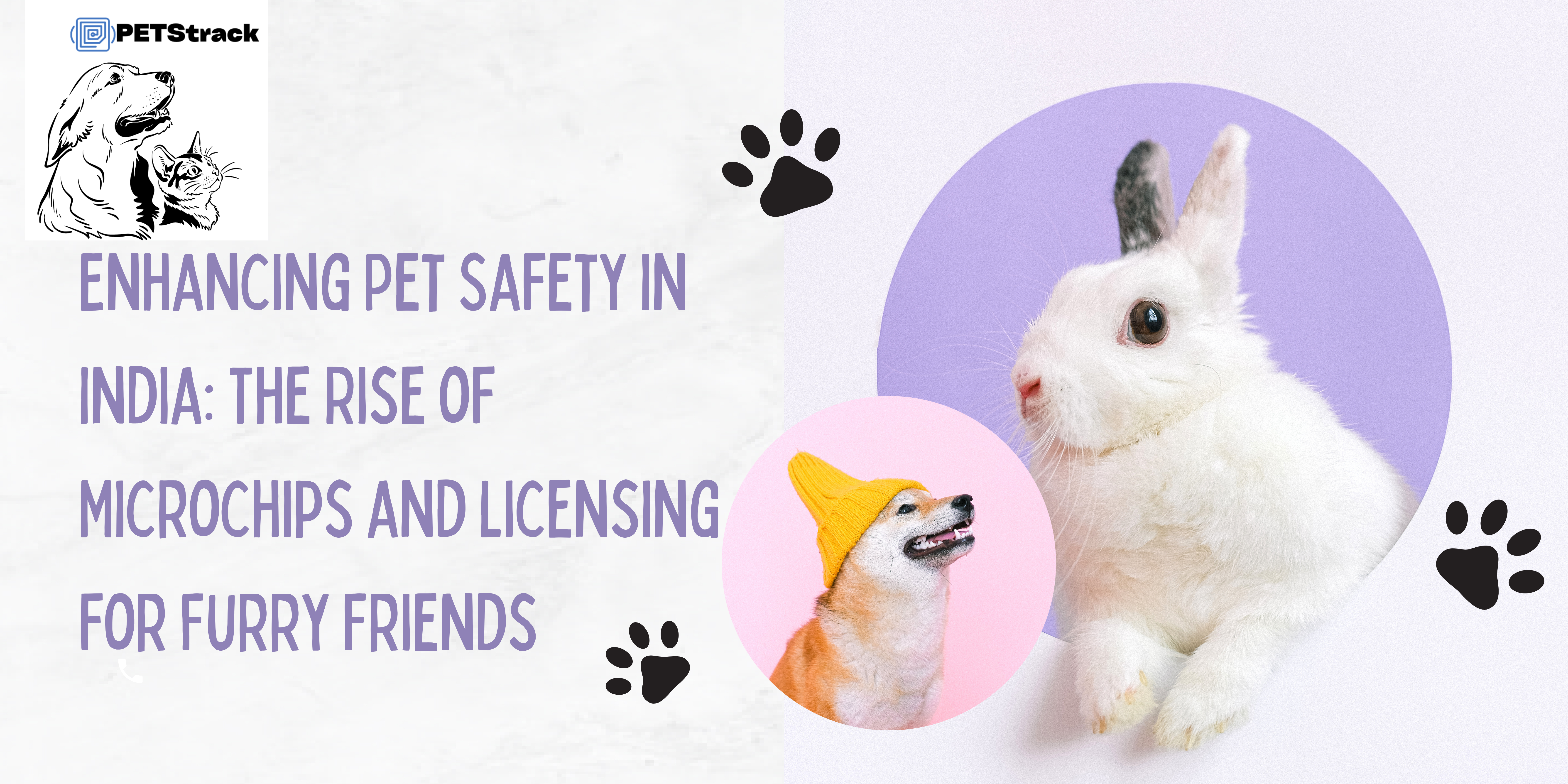Enhancing Pet Safety in India: The Rise of Microchips and Licensing for Furry Friends
As the bond between humans and their furry companions grows stronger, pet owners in India are increasingly recognizing the importance of ensuring the safety and well-being of their beloved animals. In recent years, there has been a significant rise in the adoption of microchips and licenses as essential tools for pet identification and protection. In this blog post, we will explore why pet parents in India are embracing microchipping and licensing, and how these measures contribute to the safety and security of their furry friends.
Microchips: A Lifesaving Identification Method:
Microchipping has gained immense popularity among pet owners in India due to its effectiveness in reuniting lost pets with their families. The small microchip, about the size of a grain of rice, contains a unique identification number that can be scanned by veterinarians or animal shelters. When a lost pet is found, the microchip's information leads to the owner's contact details, significantly increasing the chances of a successful reunion.
Licensing: Complying with Local Regulations:
Licensing is another crucial aspect of responsible pet ownership in India. Many local municipalities and civic bodies have implemented pet licensing regulations to ensure better pet management and control. By obtaining a pet license, owners demonstrate their commitment to their pets' welfare and contribute to a safer and more organized pet community. Licensing also helps in the tracking of pets, promotes responsible ownership, and allows authorities to enforce pet-related laws effectively.
Addressing the Issue of Strays:
India faces a significant challenge with stray animals, including dogs and cats. Microchipping and licensing not only benefit owned pets but also aid in controlling the stray population. By ensuring that owned pets are properly identified and licensed, it becomes easier for authorities to differentiate between strays and pets with responsible owners. This distinction allows for targeted efforts in managing and providing care for stray animals, thereby addressing the larger issue of animal welfare in the community.
Safeguarding Against Theft and Illegal Breeding:
Microchipping acts as a powerful deterrent against pet theft, a growing concern in India. Stolen pets can be easily identified through their microchips, making it difficult for thieves to sell or claim ownership of the stolen animals. Licensing also helps combat illegal breeding and the sale of animals, as licensed pets can be traced back to legitimate breeders and owners, promoting ethical practices within the pet industry.
Creating a Safer Community for Pets and People:
Microchipping and licensing not only benefit individual pets and their owners but also contribute to building a safer and more responsible pet community. With a higher level of accountability, pet owners are encouraged to prioritize their pets' safety, well-being, and behavior. This, in turn, reduces the chances of incidents or conflicts involving pets and ensures harmonious coexistence with non-pet-owning members of society.
As pet ownership continues to rise in India, it is heartening to see an increasing number of pet parents recognizing the importance of microchips and licenses. These measures not only provide a lifeline for lost pets but also contribute to overall animal welfare, population control, and responsible pet ownership. By embracing microchipping and licensing, pet parents in India are taking proactive steps to ensure the safety, security, and happiness of their beloved furry friends while promoting a more harmonious and compassionate society for all.
